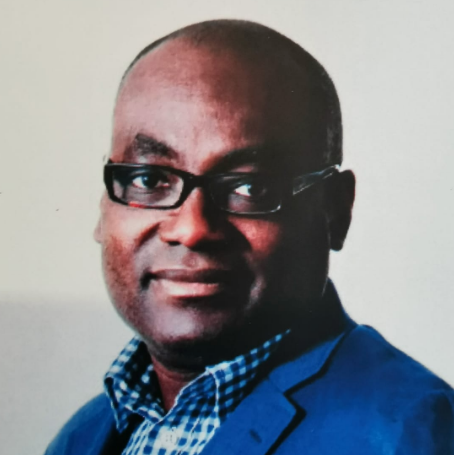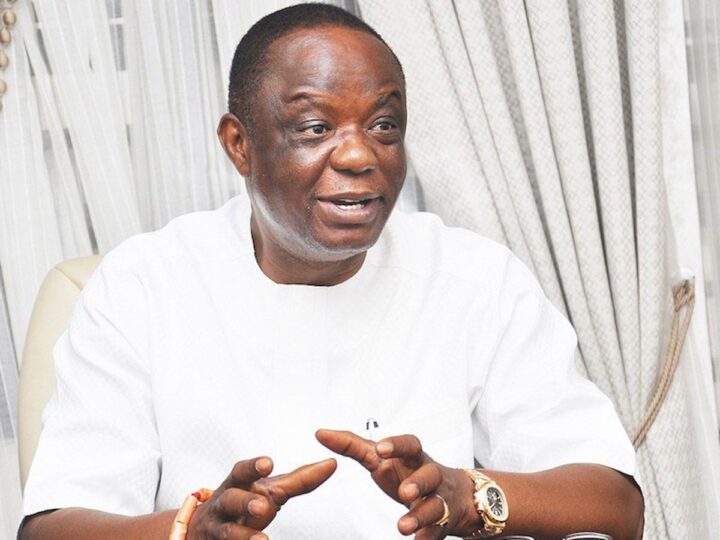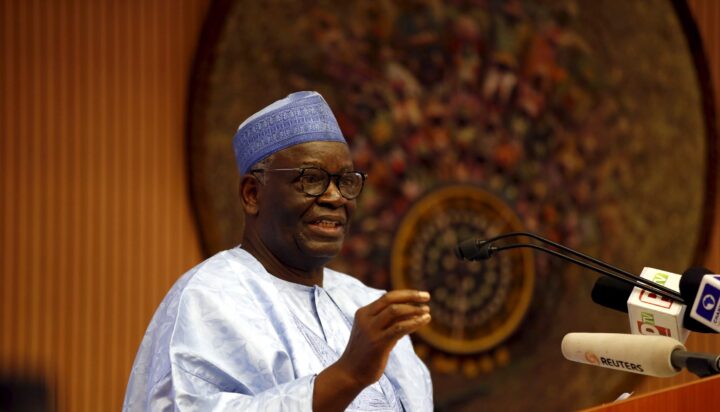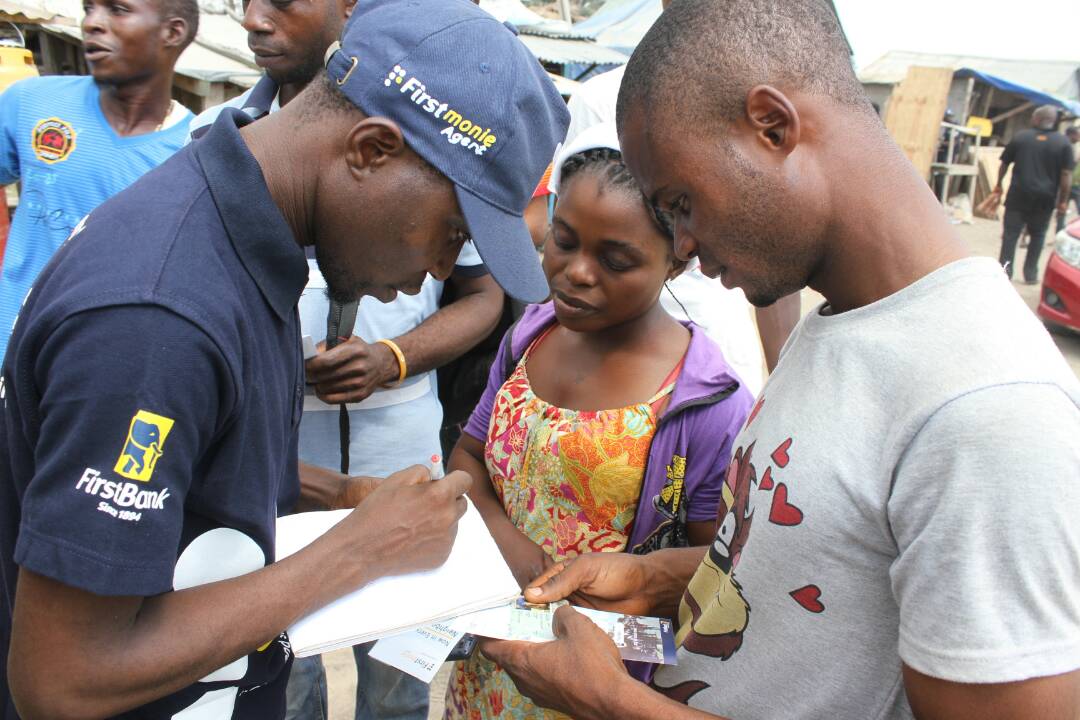Dear Nigeria,
The storms are gathering. Thunder rumbles, claps then crackle across the sky in rapid succession like reports of gunfire, the echoes dying in the distant far. Between the thundery claps, lightening strikes and sparkles, lighting up the dark brooding night. Not a winter’s tale, but the tropical battle of the elements. The climate holds secrets deep in the far reaches of its bowels. So if you wish to know what the future holds you could look at the sky, the atmosphere, the mood, which only the wise can decode. It forebodes, foretells and portends. The changing climate tells us something about we humans, but that is another story. My father could tell you what a particular month held in store just by looking at the moon. A cocktail is brewing and the air is thick: the rains will soon fall; but what kind would it be? A heavy downpour, hailstones crashing down, floods washing everything away, or gentle showers that bless the land and yield fresh shoots of life? It depends; it all depends. Whichever side you are on, let not your emotions run away with you: for the slope is slippery and the descent is fast, where only a black hole awaits. Yet raw unrestrained emotion is all that is left after reason has been banished from the sovereign realm when untutored sentiments push hard against the voice of reason.
Good old George Berkeley, a philosopher and a Bishop once said: ‘we kick up dust then complain we cannot see’. Let’s stop kicking dust before we all go blind, is what I say. But they are growing this self-determination calls, like trees they are growing, now tall and nearer the sun, where the leaves would wither and die, the stems dry and haggard, sharp like spikes.
Oduduwa Nation here, Biafra there, Arewa not far behind, but the sad truth is that Nigeria will never break up. One should never say never but a break-up is remote and here’s why. Saying this much I see glazed eyes widening, widening with astonishment that such a claim could even be suggested. I hear a deafening chorus of rubbish from advocates of self-determination. This much is to be expected. Many have unquestioningly bought this ethno-nationalist dream, impaled on its hook; the fish is out of the water, mouth opening and closing as though yearning to say something, but gasping on the end of a line for dear life. You cannot drown a fish, but you can suffocate it on land. Left marooned on the island of frustration by the nation’s endless sorry passes, they seek separation, believing it the solution to the country’s myriad ailments. This, I believe is an error.
Advertisement
England cut off the head of Charles I, so Scotland decided to make his son, Charles II monarch. But Cromwell had other ideas and wrote to them to think again, saying famously: I beseech you in the bowels of Christ, think it possible that you may be mistaken. The battle Dunbar loomed. I’m no Cromwell but I say the same to you dear reader, dear advocate of separation and self-determination – I beseech you in the bowels of the God you serve, and of the reason that God has bestowed upon you to think again, think it possible that you may be mistaken. Cromwell’s plea was for Scotland to see the danger at the end of the course upon which was about to embark. The risk, indeed the disaster that lurks around the corner that cannot then be averted, where once poised upon the precipice, retreat is no longer possible. Our advocates of self-determination, just like Scotland did then, possess an unshakeable belief and absolute certainty in its cause, and presses ahead upon this course no matter what is said here and how well or badly it is said or argued. The train of self-determination is scuttling down the tracks, who can stop it? The blinkers are on; who would remove them?
Scotland did not yield to Cromwell’s plea, so civil war ensued under Cromwell’s English forces, which routed Scotland’s forces under Sir David Leslie. Defeated, Scotland came under English domination that lasted years. This was 1650 and since then Scotland has sought independence from the union of Great Britain, the last as recently as 2014, which so far has proved elusive. And this is a country that can sustain itself if granted autonomy than any part of Nigeria ever could. The same happened in Nigeria in 1966, when the South effectively handed power to the north, when the East for legitimate reasons, attempted to secede from the Nigerian federation. The problem with certainty is that it removes the probability of error; minds hardly change upon such presuppositions. Whatever is said here carries no weight, the seeds will fall not on fertile but on stony ground. Just perhaps one would fall on fertile ground and may grow and flower: just perhaps.
For many, the Nigerian project was a mistake from the start. The British knitted this tapestry of different groups together then baked of it a cake of political union. It was a bad cake that tasted foul and no one wanted to eat of it. That was at first, but once the appetite was whetted they consumed it voraciously until 1960 when again it tasted sour again. After 1960 Nigerians thought they could bake themselves a fresh cake, a cake of their own, but soon found cake-baking with too many ingredients very tricky indeed. So they looked back to 1914, believing that was when the problem started. The quest now is to unwind the past, break the cordage and throw off the yoke of amalgamation, unshackle the tie that binds and burst the damn of imprisonment and let freedom reign across the land. If people cannot live together in peace they should go their separate ways in pieces. But did they ever? What is done cannot be undone, says old Will Shakespeare. Whichever way it was formed Nigeria is a reality that cannot be changed. The offspring of a couple not right for each other is but the reality of that union.
Advertisement
Nigeria faces many challenges that have caused the population great concern. These frustrations cannot be overlooked or ignored but must be tackled head on. The question is whether separation is the answer. I think not. The factors that drive agitation for self-determination are well known but would not be rehearsed here; but some things are worth saying. Few would agree that the current structure is balanced, fair, just or equitable. Many are aggrieved by it and a government’s duty, amongst others, is to listen to the concerns and grievances of its citizens – all its citizens – and to address those concerns like a parent would a child even if he or she thinks those grievances are groundless.
But here is the thing. Southerners – and I use the term loosely to refer to those who call the lands south of the Niger home – have never truly understood or tried to understand northerners, instead they remain certain in the belief that northerners are a backward, uneducated, uncivilized primitive people, with whom they have been yoked in an unholy amalgamation that has never worked. They never stop to ask why this putatively backward uncivilized people now hold the balance of political power over the supposedly better educated and smart Southerners. I will tell you why. Northerners are not as backward or as stupid as people assume. There is method to their manner. But the silver arrow in the northern quiver is unity, which the south sadly lacks. While the still waters of the north run deep, gathering moss that settles still, the rushing currents of the south crash over rocks and things gathering no enduring mosses of its own. Southerners are like the fox, smart, quick and clever while northerners are like the slow tortoise. But the supposed sluggishness of the northern tortoise is deceptive, quietly going about its business by stealth, without a hum or murmur, consolidating gains that send cold shivers down the spine of the southern fox. Lack of unity has been the Achilles heel of the south, a weakness that has undone it many times in the past and will continue to do so even if self-determination were grasped. The south just cannot unite. Its present façade of unity has been fashioned upon the altar of the belief that it faces a ‘common enemy’.
Two. Southerners are deeply materialistic and hedonism is their most cherished aspiration. A funeral, for instance, sets the average southerner back millions of Naira – recall Cubana’s recent burial of his mother at the cost of some billions. A northerner meanwhile will bury his dead, immediately and without fuss at a fraction of that cost. These divergent philosophies are significant since they speak to different psychologies, mentalities and approaches. Individualism drives the pursuit of materialism and hedonism, which in turn drives a wedge through the community. This is the legacy of modernity, which southerners have imbibed tout court.
Reality is the solidification of thoughts and ideas in action. Customs rest on rituals and repetition like water turns into blocks of ice. The permafrost of ethnicity holds everything together in this unbreakable solidity even though it was all invented. Against this fantasy and wishful thinking is the reality that is present day Nigeria. Many who wish to see the country to break-up no doubt see reasons eminently sensible to them why this should happen. To them the problems that confront the people has little or nothing to do with ethnic or tribal differences. Yet, the average Nigerian is disadvantaged by members of his or her own kind (tribe, group) than by someone from other ethnic group. Since Awo passed, what have Yoruba leaders done for the Yoruba people (the Oduduwa people), or the Igbo leaders for Igbo people, and Hausa-Fulani leaders for the Hausa-Fulani people, except impoverish them by feeding them dollops of ethno-religious nationalism to keep them satisfied like a dummy in the mouth of a hungry crying baby who needs food. But just as the dummy is no food and the hungry child cries still, the dummy is shoved back into its mouth. And on and on and on it goes until the child begins to fight the dummy thinking it is the cause of its hunger. It is all a distraction from failure of leadership. They keep the people on life-support with drips of tribe, tribe tribe trickling down their veins. But one cannot live on a diet of tribal difference alone.
Advertisement
As the pangs of hunger gnaw at empty stomachs, the mass fights each other upon the belief the enemy is the other tribe and not their leaders. What care has been shown to the poor, the dying, the diseased, those suffering from malnutrition, the badly educated, the poor roads and so on in their midst? Poverty, squalor, malnutrition, poor health and many more know no tribe or religion and care not whether you are Igbo, Hausa, or Yoruba. Each assails the mind, body and the soul just the same. These are the predicaments from which most Nigerians suffer daily not from some manufactured ethnic problem. If tribe is the problem why do the average Hausa, Igbo and Yoruba families live side by side without rancour?
None of these problems would self-determination resolve. If anyone were under the illusion that self-determination would usher in nirvana for the proposed Oduduwa or Biafra they only need to look to the past to see what independence looks like across Africa. Cast your mind, if you can, or are old enough, to the euphoria that greeted independence in 1960 when that night many lost their lives just from revelry induced by sheer joy. Sixty years hence and that euphoria has died, replaced by despair. This is what freedom looks like in Nigeria: merely moving from one shackle to another in the name of freedom. The pyramid is turned upside-down, now on its pinhead, it wobbles from side to side threatening to topple. All it needs is a gentle push or whispering blow of air and it will topple, but it will not break; all that would happen is pain and more suffering.
No region of the country has shown itself mature or capable enough to found a country. No single region of the country is remarkably better than another. Claims of rubbish would again ring out as some would point to fledging Biafra and how it managed to sustain itself for 30 months. The problem with the Biafran example is that time did not allow us to see how that nation would have panned out. Its unity depended on facing a common enemy, just as we see now with Oduduwa nation. In a sense, Oduduwa nation exists already: it is called South-South. What an area it is. Ibadan has not changed in a hundred years. Mapo Hall stands an empty shell of its former self, while dusty brown corrugated iron sheets remain the covers over many people sheltered abodes. Just as they were all those decades ago. Some might say, at least we live in peace. Really? Then they’ve never heard of Operation Wetię. The same goes for the East and the North. Omo ti o ba ma je ashamu lati kekere ni o tima j’enu shamu shamu, the Yoruba say – the smartness of an individual is discernible in childhood. We can tell what self-determination will look like by looking at what these areas look like now.
Advocates of self-determination often point to neat and tidy cases of countries that have partitioned like Czechoslovakia – now Slovak and Czech Republics or Yugoslavia. This is telling as well as instructive. It is telling because it shows a complete lack of understanding of the logic at play in those cases. It is instructive because these far-away examples of national splits demonstrate the romantic fantasies that inform as well as underpin the clamour for self-determination. Yugoslavia and Czechoslovakia are completely different cases compared to Nigeria. Though ethnicity played an important role in both cases, one has to understand the histories that shaped these people and their lands, particularly the different cleavages under the Austro-Hungarian Empire. They hardly point to messier examples, cases closer to homes like Sudan and South Sudan or Ethiopia and Eritrea, instances far more relevant and more alike with the Nigerian situation. Eritrea and Ethiopia are at war with each other. How many lives have been lost in the past year alone? Nigeria like the United States fought civil war that lasted three years but achieved nothing in the end. The outcome was heavy casualties and a return to the status quo. As Ashley says in Gone With The Wind ‘most of the mysteries of the world were caused by war and when the wars were over no one ever knew what they were about.’
Advertisement
About the north this too must be said. A recent video is doing the rounds on social media, which shows a northern fellow, flanked by like-minded fellows, pontificating that the revenue from the groundnut pyramids in the north helped to fund the discovery of oil deposits that Nigeria enjoys today. This of course is an invention. But I’m glad he mentioned the groundnut pyramids that Alhassan Dantata did so much to establish and which symbolised Nigeria’s agricultural past, along with cocoa in the West, under Bowler-hat wearing Fajemirokun. So what happened to those pyramids? Well, there was rosette virus but crucially Nigeria turned its back on the farms (Agriculture) and its green fresh produce in order to embrace this black poison called oil: and all was darkness. The groundnut pyramids disappeared, as did the production of cocoa, as everyone wanted money for nothing. If you knew what Cocoa House looked like before and what it looks like now, you will see the decline of an entire nation in miniature.
For all its surreptitious Machiavellian political machinations the north has not done any better either. What have they done with the political power they have acquired over the years? The region remains possibly the poorest and most deprived part of the country, where hungry street urchins roam the streets with empty bowls in hand, begging for food. Who is counting the human toll this represents in Nigeria? For a few variations, every part of Nigeria is like another. Poverty is just as rife, rampant in the south as it is in the north. Northerners are just as corrupt as southerners. Instead of fighting the main evils of poverty, lack of security, inadequate healthcare, inconsistent electricity supply, poor education, corruption, and the terrible state of the nation’s infrastructures, they are busy, like Don Quixote, fighting artificial structures. When was the last time Nigerians mobilised against poor education or inadequate health care that is killing thousands every single day? For the first time in a long time, brave young Nigerians came out to fight a great cause in 2020, to end the brutality of SARS, for which some paid with their lives. These youths wore no ethnic or religious faces or banners or flags – you could not tell who was Igbo, Hausa or Yoruba. All were motivated by the shared experiences of oppression at the hands of the police. Almost no politician or leader came out in support of their course. Almost no politician had tried to stop police oppression that brought these youths out on the streets.
Advertisement
To agitate for independence is one thing but to posses a clear vision of that putative state is another. Who so far has articulated what any post-independent Oduduwa nation would look like – I mean really look like? Where would the capital be sited, what commodities would fire its economy upon which its eventual socio-economic survival would depend? Mr Simon Kolawole has raised some of these questions in a recent article. With miscegenation and integration deepening who would or should count as an Oduduwa descendent or the child of Biafra, and where would the boundaries of the new nation start and end? Would non-ethnic domiciles be expelled? Who would own the oil reserves in the Delta? New sets of disagreements and grievances would ensue just to settle these questions, internecine wars among supposed allies would begin. It would be like Nigeria never broke up.
What is currently playing out is sixty years of leadership failure in Nigeria, failure to live up to the ideal and the promise of independence. The clamour for self-determination is a Cri de coeur for those failures now disguised as ethnic problems. But self-determination will not resolve these problems because the tribe did not cause but exacerbated them. Self-determination will merely brew fresh troubles, upon the false belief that current malaise is the result of ethnic differences. We have constructed a false narrative and ran with it, much like the dish ran away with the spoon because it falsely believed, courtesy of the moon that the spoon looked more attractive than it really was. Which was perhaps why the cow jumped over it, the moon I mean. Nigerian leaders of various shades and colours have sold Nigerians down the Niger and parachuted out of the swamps to safety, leaving many to drown without mercy. This nation has failed to make accomplishments commensurate to its size for precisely the kinds of reasons that have now led to the current impasse.
Advertisement
Self-determination is a fantasy at the heart of which is frustration, a pipe dream unlikely to become reality. There is the belief among many that an appeal to the Western powers would bring about support for self-determination. This is the fantasy. Neither the Western powers nor the United Nations would welcome let alone recognise any states carved out of Nigeria. China will not sit on its hands and watch its considerable interest in Nigeria crash and burn. It is not in their interest to see Nigeria break up. For all its posturing the north would not allow the break-up of Nigeria. Not that it is up to them to determine this outcome, but because they too need a unitary state for their survival; each region is tied to the Nigerian project. Though they will deny this. Nigerians need each other more than they think they do.
The real delusion is that Nigeria came into being in 1914. It did not. This is a common misconception among those who see their history in terms of dates. Dates are symbolic snapshots that mark significant events. It is like believing the date you celebrate your birthday is the day you grew tall. The year 1914 is of course significant in Nigerian history but we must not fixate on that date. It’s the days before the date that matter. Nigeria is not a mere a political construct with a constitutional structure but also a geographical reality. It refers to the people who live in the areas around the Niger – Niger area – hence Nigeria. Yes, I know, some live further away but proximity is the point. Post-independence, the geography will not change. Kaduna will still be the same distance from Lagos, Abuja the same distance from Aba. Geography made territorial acquisition easy for the British; amalgamation was for economic necessity.
Advertisement
Desertification is a real problem that many have not factored into this picture-postcard ideal of independence. Climate change is displacing people everywhere. Herdsmen will continue to pour down south because there will be no border to stop them. Not even Trump can build a wall that high. Perhaps the biggest folly of all is the belief that one part of Nigeria threatens the other. This is a diversion. Nigeria faces a grave existential threat and not from within but from without. This threat affects every Nigerian North South East and West. When it comes there will be nowhere to run. Self-determination will not move the land from its present location. Lands do not and cannot run away, only people can, but even they would run out of land to which they can run.
So what’s the alternative? One single word: talking. As Churchill, who saw the devastation of two world wars aptly put it, to jaw jaw is better than to war war. A Nigerian gentleman, Femi Fani-Kayode, spoke recently about how talking with each other is the only way out of the present malaise and he was right. Throughout history every conflict has ultimately come down to a table, in a room where it’s been resolved. Yet the folly of humans dictates that they would try the battlefields first, swim in the blood of many innocent people before finally coming to their senses and doing the right thing. When General Phillip Effiong of Biafra surrendered to the federal troops, it was in a room, at a table in Dodan Barracks. As these former brothers in arms shook hands, one after the other, Gowon, shaking his head kept saying: How are you? Good to see you. It was a subtle reminder that these men were never enemies. Yes, I know, there is intransigence but there is intransigence on all sides. The sad truth is that the British constructed a procrustean bed called Nigeria and every Nigeria will have to lie on it. There is strength in diversity; difference does not entail enmity.
Good old Schopenhauer ever the pessimist does tell a heart-warming story. It is about a group of porcupines huddled together in winter, where their sharp spines kept pricking each other. So they would retreat to give each other space. But the cold winds would again drive them into the huddle while the sharp spines will pull them apart. Back and forth they went until they could find a suitable equidistance between warmth and pain. That is what Nigeria need and will always need, whether it stays united or breaks up. So let the fresh wind blow the storms away and usher in a climate of solidarity and cooperation. Let the rains fall, but in showers that will bless the land. Let us mend fences and build bridges. Let us release the doves of peace. Let us pour a libation on wounds not upon them grains of salt. The road is rocky and will continue to be so, but the alternative does not bear thinking. Breaking up is hard to do, but should it happen, it will not be sweet parting sorrow but sorrow all the way. But at the end of it all, a return to the status quo.







